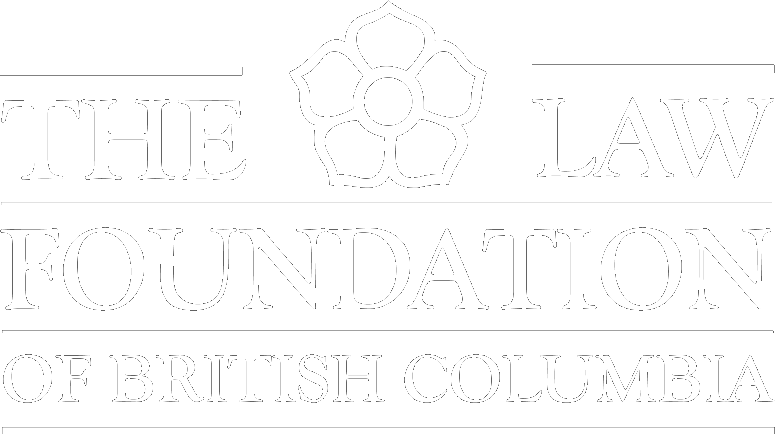CASES
Complainant v. College of Physicians and Surgeons of British Columbia (No. 1), 2022 BCHPRB 39 (CanLII)
Prisoners’ Legal Services represented a client in the custody of BC Corrections with a complaint against a psychiatrist to the BC College of Physicians and Surgeons. The complaint was sent back to the College after the review board found the College was required to consider the Mandela Rules (see below). In this decision, the Review Board found the subsequent decision of the College was unreasonable and found it was required to consider international law in interpreting the ethical rule prohibiting medical professionals from participating in human rights abuses.
Tan v Canada (Attorney General), 2018 FCA 186
Prisoners’ Legal Services represented Mr. Tan in an appeal to the Federal Court of Appeal concerning the rights of prisoners without immigration status in Canada to be protected by the Canadian Human Rights Act. The Canadian Human Rights Commission refused to deal with Mr. Tan’s complaint because he was not considered to be “lawfully present in Canada” under the Act. The Federal Court of Appeal decided that federal prisoners without immigration status in Canada are protected by the Canadian Human Rights Act because they are lawfully present as they are serving sentences in Canadian prisons.
Complainant v College of Physicians and Surgeons, Decision No. 2016-HPA-235(b)
Prisoners’ Legal Services represented Brent Crane, a provincial prisoner, with a complaint against a psychiatrist to the BC College of Physicians and Surgeons. Mr. Crane alleged that the psychiatrist violated ethical rules including the United Nations’ Mandela Rules that prohibit participating in practices that constitute torture or cruel treatment in relation to his ongoing placement in solitary confinement. The College found no wrong-doing on the part of the psychiatrist. The Health Professions Review Board found that the College was required to consider the application of the Mandela Rules in its consideration of Mr. Crane’s complaint and sent the matter back for redetermination.
British Columbia (Ministry of Public Safety and Solicitor General) v. Mzite, 2014 BCCA 220
Prisoners’ Legal Services filed a complaint with the BC Human Rights Tribunal on behalf of Mr.Charles Mzite, a prisoner with HIV. While being held in provincial custody, Mr. Mzite experienced regular interruptions of his HIV medication. The Tribunal accepted his late-filed complaint in consideration of the systemic issues involving vulnerable prisoners and the public interest in having the complaint heard. The government argued the Tribunal was wrong to consider the systemic issues and the Supreme Court of BC agreed with the government.
PLS and the Community Legal Assistance Society represented Mr. Mzite in his appeal to the BC Court of Appeal. The Court of Appeal upheld the Tribunal decision to accept the late-filed complaint, accepting that the Tribunal’s remedy for an individual complaint can have a systemic impact. The Court of Appeal found that the BCSC erred in finding that the Tribunal could consider only the complainant’s personal interest in the complaint. It found “the Tribunal has been given a legislative mandate to exercise a discretion in the public interest to hear late-filed complaints.” In this case, there was evidence that BC Corrections’ policies created a systemic, ongoing problem of prisoners having HIV medication interrupted. The Court of Appeal found that the Tribunal “must be deemed well-versed…in identifying areas where public attention or scrutiny is warranted and in identifying gaps in its jurisprudence”.
Brazeau v. Attorney General of Canada, 2013 FC 545
Prisoners’ Legal Services won this judicial review of the Canadian Human Rights Commission’s decision to dismiss Mr. Brazeau’s human rights complaint. Mr. Brazeau was a prisoner who suffered from ADHD. His medication was cut off and he was transferred to maximum security where he spent the majority of the next three years in segregation because he was unable to control his behaviour without effective medication. The Federal Court found that the investigation into his human rights complaint was inadequate and sent the matter back to the Commission for reinvestigation.
Kelly v. B.C. (Ministry of Public Safety and Solicitor General) (No. 3), 2011 BCHRT 183
Prisoners’ Legal Services successfully represented Mr. Kelly in a British Columbia human rights complaint regarding access to Indigenous spiritual accommodation in segregation. The Tribunal found that a prisoner’s human rights are not suspended upon incarceration and that BC Corrections should reflect in its policies and practices an adherence to the fundamental human rights of all citizens as reflected in the BC Human Rights Code, which are particularly acute in individuals held in high security environments.
Eshghabadi v. British Columbia (Minister of Public Safety), 2011 BCSC 434
Mr. Eshghabadi was a provincial prisoner whose first language was not English. The institutional dentist removed his 10 remaining teeth. Mr. Eshghabadi was not provided an interpreter and did not understand or give consent for the procedure. He could no longer wear his dentures, and BC Corrections refused to provide him recommended new dentures. The BC Supreme Court ordered BC Corrections to provide Mr. Eshghabadi with new dentures.
Tekano v. Attorney General of Canada, 2010 FC 818
In this case, Prisoners’ Legal Services represented Mr. Tekano, who suffers from mental disabilities who was held in segregation for extended periods of time. Mr. Tekano self harmed in the form of head banging when he was placed in isolation, or feared placement in isolation. We successfully challenged the Canadian Human Rights Commission’s decision to dismiss his complaint.
Drennan v. Canada (Attorney General), 2008 FC 10
Mr. Drennan was a prisoner who required the use of a wheelchair. The Correctional Service of Canada (CSC) placed him in a cell that was accessible only by stairs. Prisoners’ Legal Services filed a human rights complaint on behalf of Mr. Drennan concerning CSC’s failure to accommodate his physical disability. We successfully filed for interim relief in Federal Court on the basis of the human rights complaint. The Federal Court recognized the enhanced duty to accommodate prisoners who are in a uniquely vulnerable position.
Gates v. Canada (Attorney General), 2007 FC 1058
Prisoners’ Legal Services represented five prisoners who were subjected to very cold temperatures in their unit. We successfully sought an order for interim relief, and a final order that the Correctional Service of Canada install a thermostat and maintain reasonable temperatures for the prisoners in this unit.
Gifford v. Canada (Attorney General), 2007 FC 606
Prisoners’ Legal Services represented Mr. Gifford in this judicial review of the Independent Chairperson’s decision to change the charge during his prison disciplinary hearing. The Federal Court finds that the Independent Chairperson does not have the authority to change the charge.
Robinson v. Canada (Attorney General), 2006 FC 1064
Mr. Robinson was found guilty of a disciplinary offence. He was not permitted to call a relevant witness, and the Independent Chairperson found that informal resolution is available only before the charge is laid. The Federal Court found that Mr. Robinson’s rights to procedural fairness were violated when he was not permitted to call a relevant witness and that the Independent Chairperson erred in law by not considering whether Mr. Robinson’s right to information resolution had been respected.
May v. Ferndale Institution, 2005 SCC 82
Five prisoners challenged their involuntary transfers from minimum to medium security. Prisoners’ Legal Services was involved in setting up the record for this case. The Supreme Court of Canada re-established the right to apply for habeas corpus in provincial superior court.
Prisoners’ Legal Services
302-7818 6th Street
Burnaby, BC
Tel: 604-636-0470
Fax: 604-636-0480
Email: info@pls-bc.ca

We are grateful for the
funding provided by

How to Show Your Support
Help us to continue to fight for the human rights of prisoners in BC! PLS is currently litigating the important systemic issues of the segregation of prisoners with mental disabilities, access to health care, transgender prisoner rights, and access to religion and Indigenous spirituality. We need help to continue to do this important work. Donations to West Coast Prison Justice Society are non-charitable and are not tax deductible.
Donations can be made to
West Coast Prison Justice Society
Please call us at 604-636-0470 or email us at info@pls-bc.ca if you would like to discuss your donation.
Thanks for your support!

